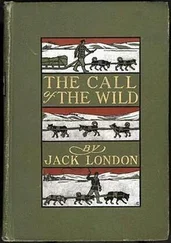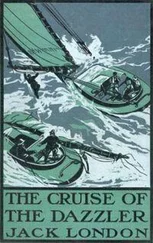Jack London - The Road
Здесь есть возможность читать онлайн «Jack London - The Road» весь текст электронной книги совершенно бесплатно (целиком полную версию без сокращений). В некоторых случаях можно слушать аудио, скачать через торрент в формате fb2 и присутствует краткое содержание. Год выпуска: 1907, Жанр: Классическая проза, на английском языке. Описание произведения, (предисловие) а так же отзывы посетителей доступны на портале библиотеки ЛибКат.
- Название:The Road
- Автор:
- Жанр:
- Год:1907
- ISBN:нет данных
- Рейтинг книги:5 / 5. Голосов: 1
-
Избранное:Добавить в избранное
- Отзывы:
-
Ваша оценка:
- 100
- 1
- 2
- 3
- 4
- 5
The Road: краткое содержание, описание и аннотация
Предлагаем к чтению аннотацию, описание, краткое содержание или предисловие (зависит от того, что написал сам автор книги «The Road»). Если вы не нашли необходимую информацию о книге — напишите в комментариях, мы постараемся отыскать её.
The Road — читать онлайн бесплатно полную книгу (весь текст) целиком
Ниже представлен текст книги, разбитый по страницам. Система сохранения места последней прочитанной страницы, позволяет с удобством читать онлайн бесплатно книгу «The Road», без необходимости каждый раз заново искать на чём Вы остановились. Поставьте закладку, и сможете в любой момент перейти на страницу, на которой закончили чтение.
Интервал:
Закладка:
What happened after that is very vague in my memory. It was like going through a threshing-machine. I was bandied about from one end of the car to the other. Those eighty-four hoboes winnowed me out till what little was left of me, by some miracle, found a bit of straw to rest upon. I was initiated, and into a jolly crowd. All the rest of that day we rode through the blizzard, and to while the time away it was decided that each man was to tell a story. It was stipulated that each story must be a good one, and, furthermore, that it must be a story no one had ever heard before. The penalty for failure was the threshing-machine. Nobody failed. And I want to say right here that never in my life have I sat at so marvellous a story-telling debauch. Here were eighty-four men from all the world-I made eighty-five; and each man told a masterpiece. It had to be, for it was either masterpiece or threshing-machine.
Late in the afternoon we arrived in Cheyenne. The blizzard was at its height, and though the last meal of all of us had been breakfast, no man cared to throw his feet for supper. All night we rolled on through the storm, and next day found us down on the sweet plains of Nebraska and still rolling. We were out of the storm and the mountains. The blessed sun was shining over a smiling land, and we had eaten nothing for twenty-four hours. We found out that the freight would arrive about noon at a town, if I remember right, that was called Grand Island.
We took up a collection and sent a telegram to the authorities of that town. The text of the message was that eighty-five healthy, hungry hoboes would arrive about noon and that it would be a good idea to have dinner ready for them. The authorities of Grand Island had two courses open to them. They could feed us, or they could throw us in jail. In the latter event they'd have to feed us anyway, and they decided wisely that one meal would be the cheaper way.
When the freight rolled into Grand Island at noon, we were sitting on the tops of the cars and dangling our legs in the sunshine. All the police in the burg were on the reception committee. They marched us in squads to the various hotels and restaurants, where dinners were spread for us. We had been thirty-six hours without food, and we didn't have to be taught what to do. After that we were marched back to the railroad station. The police had thoughtfully compelled the freight to wait for us. She pulled out slowly, and the eighty-five of us, strung out along the track, swarmed up the side-ladders. We "captured" the train.
We had no supper that evening-at least the "push" didn't, but I did. Just at supper time, as the freight was pulling out of a small town, a man climbed into the car where I was playing pedro with three other stiffs. The man's shirt was bulging suspiciously. In his hand he carried a battered quart-measure from which arose steam. I smelled "Java." I turned my cards over to one of the stiffs who was looking on, and excused myself. Then, in the other end of the car, pursued by envious glances, I sat down with the man who had climbed aboard and shared his "Java" and the hand-outs that had bulged his shirt. It was the Swede.
At about ten o'clock in the evening, we arrived at Omaha.
"Let's shake the push," said the Swede to me.
"Sure," said I.
As the freight pulled into Omaha, we made ready to do so. But the people of Omaha were also ready. The Swede and I hung upon the side-ladders, ready to drop off. But the freight did not stop. Furthermore, long rows of policemen, their brass buttons and stars glittering in the electric lights, were lined up on each side of the track. The Swede and I knew what would happen to us if we ever dropped off into their arms. We stuck by the side-ladders, and the train rolled on across the Missouri River to Council Bluffs.
"General" Kelly, with an army of two thousand hoboes, lay in camp at Chautauqua Park, several miles away. The after-push we were with was General Kelly's rear-guard, and, detraining at Council Bluffs, it started to march to camp. The night had turned cold, and heavy wind-squalls, accompanied by rain, were chilling and wetting us. Many police were guarding us and herding us to the camp. The Swede and I watched our chance and made a successful get-away.
The rain began coming down in torrents, and in the darkness, unable to see our hands in front of our faces, like a pair of blind men we fumbled about for shelter. Our instinct served us, for in no time we stumbled upon a saloon-not a saloon that was open and doing business, not merely a saloon that was closed for the night, and not even a saloon with a permanent address, but a saloon propped up on big timbers, with rollers underneath, that was being moved from somewhere to somewhere. The doors were locked. A squall of wind and rain drove down upon us. We did not hesitate. Smash went the door, and in we went.
I have made some tough camps in my time, "carried the banner" in infernal metropolises, bedded in pools of water, slept in the snow under two blankets when the spirit thermometer registered seventy-four degrees below zero (which is a mere trifle of one hundred and six degrees of frost); but I want to say right here that never did I make a tougher camp, pass a more miserable night, than that night I passed with the Swede in the itinerant saloon at Council Bluffs. In the first place, the building, perched up as it was in the air, had exposed a multitude of openings in the floor through which the wind whistled. In the second place, the bar was empty; there was no bottled fire-water with which we could warm ourselves and forget our misery. We had no blankets, and in our wet clothes, wet to the skin, we tried to sleep. I rolled under the bar, and the Swede rolled under the table. The holes and crevices in the floor made it impossible, and at the end of half an hour I crawled up on top the bar. A little later the Swede crawled up on top his table.
And there we shivered and prayed for daylight. I know, for one, that I shivered until I could shiver no more, till the shivering muscles exhausted themselves and merely ached horribly. The Swede moaned and groaned, and every little while, through chattering teeth, he muttered, "Never again; never again." He muttered this phrase repeatedly, ceaselessly, a thousand times; and when he dozed, he went on muttering it in his sleep.
At the first gray of dawn we left our house of pain, and outside, found ourselves in a mist, dense and chill. We stumbled on till we came to the railroad track. I was going back to Omaha to throw my feet for breakfast; my companion was going on to Chicago. The moment for parting had come. Our palsied hands went out to each other. We were both shivering. When we tried to speak, our teeth chattered us back into silence. We stood alone, shut off from the world; all that we could see was a short length of railroad track, both ends of which were lost in the driving mist. We stared dumbly at each other, our clasped hands shaking sympathetically. The Swede's face was blue with the cold, and I know mine must have been.
"Never again what?" I managed to articulate.
Speech strove for utterance in the Swede's throat; then faint and distant, in a thin whisper from the very bottom of his frozen soul, came the words:-
"Never again a hobo."
He paused, and, as he went on again, his voice gathered strength and huskiness as it affirmed his will.
"Never again a hobo. I'm going to get a job. You'd better do the same. Nights like this make rheumatism."
He wrung my hand.
"Good-by, Bo," said he.
"Good-by, Bo," said I.
The next we were swallowed up from each other by the mist. It was our final passing. But here's to you, Mr. Swede, wherever you are. I hope you got that job.
Road-Kids and Gay-Cats
Every once in a while, in newspapers, magazines, and biographical dictionaries, I run upon sketches of my life, wherein, delicately phrased, I learn that it was in order to study sociology that I became a tramp. This is very nice and thoughtful of the biographers, but it is inaccurate. I became a tramp-well, because of the life that was in me, of the wanderlust in my blood that would not let me rest. Sociology was merely incidental; it came afterward, in the same manner that a wet skin follows a ducking. I went on "The Road" because I couldn't keep away from it; because I hadn't the price of the railroad fare in my jeans; because I was so made that I couldn't work all my life on "one same shift"; because-well, just because it was easier to than not to.
Читать дальшеИнтервал:
Закладка:
Похожие книги на «The Road»
Представляем Вашему вниманию похожие книги на «The Road» списком для выбора. Мы отобрали схожую по названию и смыслу литературу в надежде предоставить читателям больше вариантов отыскать новые, интересные, ещё непрочитанные произведения.
Обсуждение, отзывы о книге «The Road» и просто собственные мнения читателей. Оставьте ваши комментарии, напишите, что Вы думаете о произведении, его смысле или главных героях. Укажите что конкретно понравилось, а что нет, и почему Вы так считаете.





